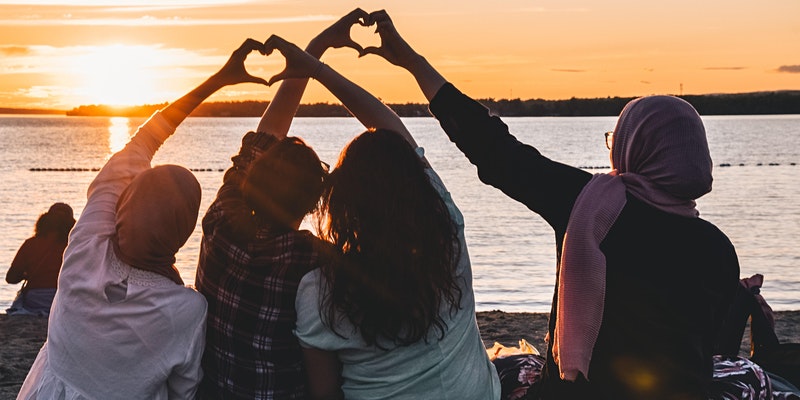Polyamory can be defined in many different ways, but some of the common elements in polyamorous relationships include: love, intimacy, commitment, honesty, communication, vulnerability all in the context of non-exclusivity.
Polyamory is different for everyone, so learning what works for you will take some time.
Right now in Australia the term polyamory seems to be becoming more mainstream, through newspaper and media coverage, along with general conversation between friends. So for those still unsure of the term, what does it actually mean and who are these polyamorous folk down under?
If you’re steadfastly poly, you may already have an idea. However, if this is one of the first stops on your poly journey, let us serenade you with some facts.
Poly is from the Greek polus, meaning ‘much’ or ‘many’. Amory is from the latin amor, meaning love. So polyamory, also referred to as ethical non-monogamy, means, many loves.
There are many variances on the definition of polyamory, however here is one that resonates with us: ‘polyamory is the non-possessive, honest, responsible & ethical philosophy and practice of loving multiple people simultaneously’.
Okay, but how does it work? Well, there’s no one-size-fits-all approach to polyamory, and it can take on a wide variety of forms – from open relationships, to occasional swinging to long-term live-in relationships between several people and much more. (Watch this space in the future for profiles on local poly people discussing their lifestyles)
So who practises poly? Well happy, smart people! But don’t just take our word for it. Academic studies show that polyamorous people are happier than the general population, as well as being better educated, with more PHDs and Master’s degrees. Some claim that these smarts provide the “intellectual sophistication to understand that sexual monogamy is neither natural or common” and that “polyamory is the sweet result of modernity”. Hmm, fighting words.
Research also shows that poly people are more open to new experiences (that’s an obvious one, right?), very rarely religious, but not typically wealthy (dammit) – possibly because we place more emphasis on those new experiences rather than on material possessions.
While we are on a roll here, poly people are all ages statistically, however more women than men, and more lesbian, gay and bisexual people than heterosexuals identify as poly.
Poly people are typically chatty, as psychologist Bjarne Holmes states “they communicate to death”. Polyamorous people generally have good relational skills and tend to consistently discuss and reassess boundaries. They’re also typically less jealous than the general population, but that doesn’t mean they don’t experience jealousy. It can be noted that due to their higher levels of communication, they may seek better coping mechanisms to deal with such difficult emotions. This has led some academics to argue that polyamory—rather than being the death of marriage – could in fact save it.
Finally, people who practise polyamory are typically emotionally aware, and “bring their feelings to the table”, writes Holmes.
It’s true. We’re empathic talkers. And you know what that means? Better sex. What’s not to love?
Luckily, there are a lot of us to love. There’s no numbers for Australia (as yet) but in the US, academic studies estimate that 5% of people are in sexually non-monogamous relationships. If we apply that to Australia, we could have 1.2 million polyamorous people living in this sunburned country.
The number of people identifying as poly are growing, too. Online dating behemoth OKCupid just added a polyamorous option after their research showed that a whopping 42% of their users would consider dating someone already involved in an open or polyamorous relationship. At the same time, the number of people identifying as monogamous on OKCupid has decreased significantly from 56% in 2010 to only 44% in 2015.
But it’s not all good news. While awareness of polyamory is growing, it’s still a way off being mainstream. 25.8% of poly people have experienced discrimination, and most of us aren’t publicly open about our lifestyles, with some people declining to use their surnames, or to use pseudonyms, when discussing polyamory in the media.
Collectively, this is why we have created a safe space and community in Australia for anyone who is open to or already engaging in polyamorous relationships. While it is slowly becoming less stigmatised and more accepted, we have a polyamorous dating app as well as Melbourne bar events, workshops and private parties, with the goal of expanding across multiple cities. So if you think polyamory may be for you, stick around and meet some smart, happy people who share in the same values.
Try reading these resources and listening to these podcasts:
Books
- The Ethical Slut: A practical guide to polyamory, open relationships and other adventures in sex and love by Janet Hardy
- Love’s not color blind: Race, representation in polyamorous and other alternative communities by Kevin A. Patterson




